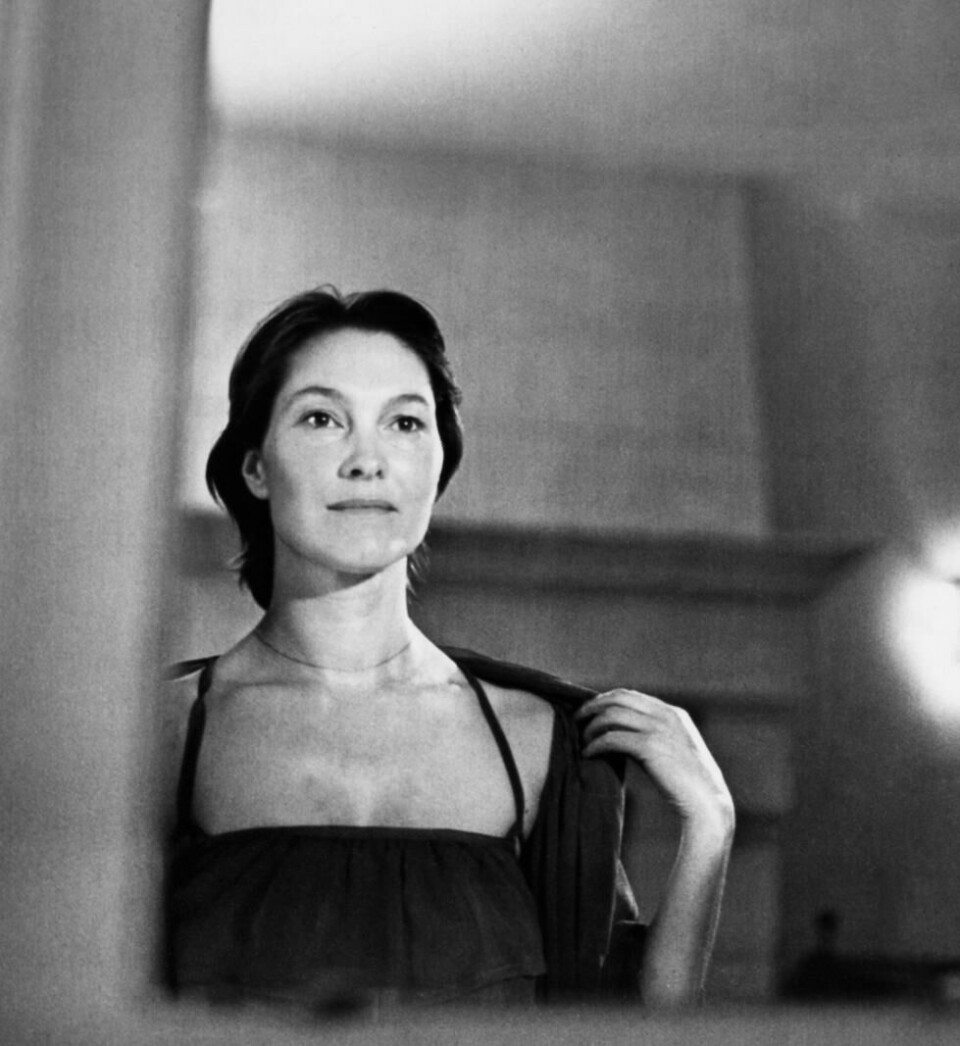
Botho Strauss „Groß und klein“,
Lotte has been seen as of the finest woman roles in recent German drama ever since the production by Peter Stein. Botho Strauss „Groß und klein“, premiered 8 December 1978, and is streamed from Schaubühne Saturday April 4th.
Botho Strauss’ second play about contemporary West German society, after Three Acts of Recognition, became a modern classic, at least in the German canon, for several reasons. The journey play in ten scenes presents the thirty-something graphic designer Lotte as a complex female protagonist in a quest for real communication and affection. The sociological context is, exactly ten years after the revolt of 1968, how the attempt of collective emancipation has led to a culture of materialistic egotism and superficial individualism. But what sociologists in America know as ‘the Me Generation’ (that would ultimately celebrate 1980s yuppie life styles) can be found in Strauss as shaped by the condition of German post-war neuroses and, albeit often satirical, existential loneliness.
Isolation and communication
The first scene shows Lotte on vacation in Morocco, a destination betraying the international taste of this new middle-class lonely Lotte belongs to, and at the same time a place in the desert as a symbol and starting point for her quest. Lotte is overhearing the late-night conversation of two German men behind Venetian blinds in the empty dining hall of her hotel in Agadir. The issues of isolation and communication are not only addressed with this setting but also in the structure of speech: What the men talk about is presented by Lotte’s monologue, who furthermore reflects upon the nature of her all-German tour group: “Greed, envy, disinterest, avarice and blind zeal – these are the principal passions that our siesta group suffers from. And alcoholism.”
Back in Germany, in the town of Saarbrücken, Lotte finds herself in the apartment of a couple that she wants to have as acquaintances for their seemingly functional family situation with two kids and a hard-working providing husband. The nameless man speaks about his special valves for fish-tanks quite in the way of 1960s Wirtschaftswunder propaganda: “They go through me from Germany all over the world.” The woman rejects Lotte’s desire for becoming known closer with them.
One of the finest woman roles
The third and longest scene is titled “Ten rooms” and composed of 16 mini-scenes set in an apartment building peopled with Lotte’s husband Paul, pensioners, a bohemian, a drunk Turk, two academics and a pathologically sociophobic girl in a tent – a grotesque portrayal of a society in monadic isolation. From here Lotte continues her journey to visit a former schoolmate (the whole conversation with her through intercom) and finally the family of her brother in Northern Germany, another disaster of misunderstandings and failing communication. Upon this we see Lotte as the secretary of a new lover (communication as business) and in a brief encounter with an enigmatic man at some bus stop. In the end Lotte sits in the waiting room of a doctor’s office, with her final line “Mir fehlt ja nichts” having a double meaning: I don’t miss anything – I am not sick. Both meanings are hard to believe.
In Peter Stein’s Uraufführung at Schaubühne the outstanding Edith Clever was the first Lotte on stage, her isolation intensified by huge spaces around her. Clever’s strident interpretation was seen by some critics in the context of Strindbergian dimensions, as a transgressive Dionysian self-seeker. Other stagings discovered the sarcastic humour in Strauss’ views of West German un-society while Lotte has been recognized as one of the finest woman roles in recent German drama ever since. (Published 04.04.2020)
